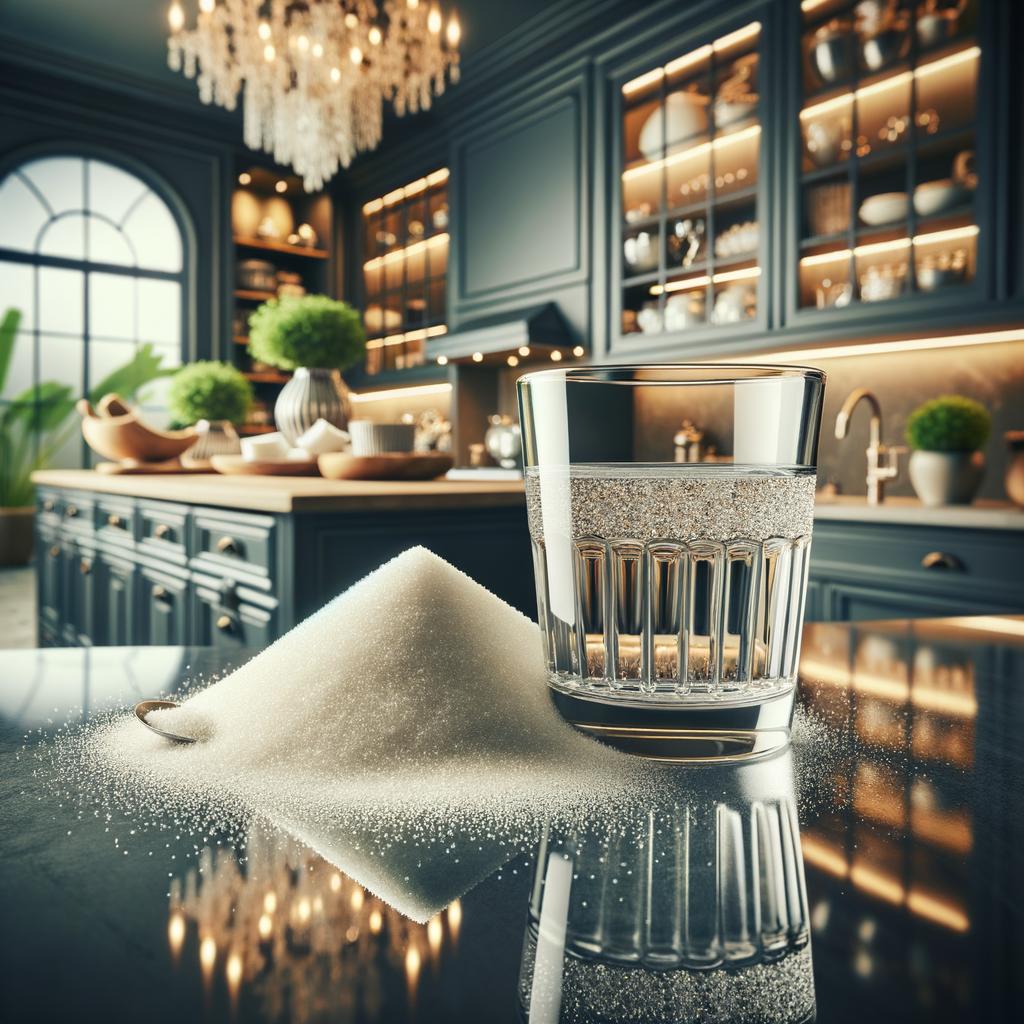Sugar and Water

Sugar
Description Sugar, a crystalline substance of pure sweetness, is a staple in pantries worldwide. It comes in various forms, from the refined white granules we know so well to the raw, golden brown crystals of turbinado. Its texture can either be coarse or fine, but its flavor profile remains the same - sweet and comforting. Sugar's unique characteristic lies in its versatility. It can be used to sweeten, preserve, and even to create texture in foods.
Primary Uses Sugar is primarily used to sweeten foods and beverages. It's a key component in a myriad of cuisines, from the French pastries to the Indian sweets, from the Southern barbecue sauces to the Chinese sweet and sour dishes. In non-culinary uses, sugar has been used in medicinal purposes as a preservative and an antiseptic. Its cultural significance is vast, often symbolizing wealth and prosperity in many cultures.
History Sugar has a rich and romantic history. Originating in New Guinea over 10,000 years ago, it spread to Southeast Asia and the Indian subcontinent, where it was first refined. In the Middle Ages, sugar was a luxury, a 'spice' only the wealthy could afford. Over time, it became more accessible, and its popularity skyrocketed. Sugar's history is also intertwined with darker stories of slave labor on sugar plantations, reminding us of its bitter-sweet past.
Nutritional Information Sugar provides energy in the form of carbohydrates, but it lacks other nutrients. While it's fine in moderation, excessive consumption can lead to health issues like diabetes and obesity. Compared to similar sweeteners like honey, sugar has fewer vitamins and minerals.
Water
Description Water, the life-giving liquid, is clear, tasteless, and odorless. Its unique characteristic is its ability to dissolve more substances than any other liquid, earning it the title of the "universal solvent". It's also the only natural substance found in all three physical states - liquid, solid, and gas - at the temperatures naturally occurring on Earth.
Primary Uses Water is used in cooking for boiling, steaming, and simmering. It's a key component in soups, stews, and broths, and is used in baking as a binding agent. Beyond the culinary world, water is vital for hydration and is used in various rituals and ceremonies across cultures due to its purifying properties.
History Water's history is as old as life itself. It has been revered and respected in many ancient civilizations, from the Egyptians who worshipped the Nile, to the Romans who built impressive aqueducts for water supply. Water has always been a symbol of life, purity, and renewal throughout history.
Nutritional Information Water doesn't provide vitamins, minerals, or calories, but it is essential for life. It helps regulate body temperature, lubricate joints, and transport nutrients. When compared to other beverages, water is the healthiest choice as it provides hydration without any added sugars or calories.

